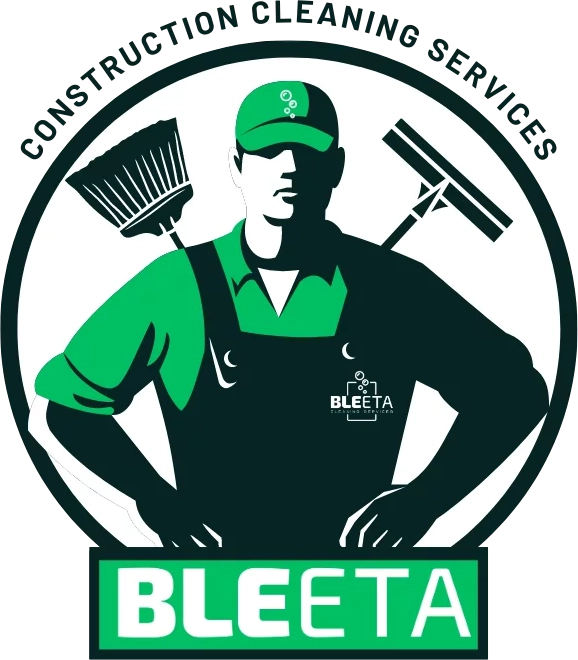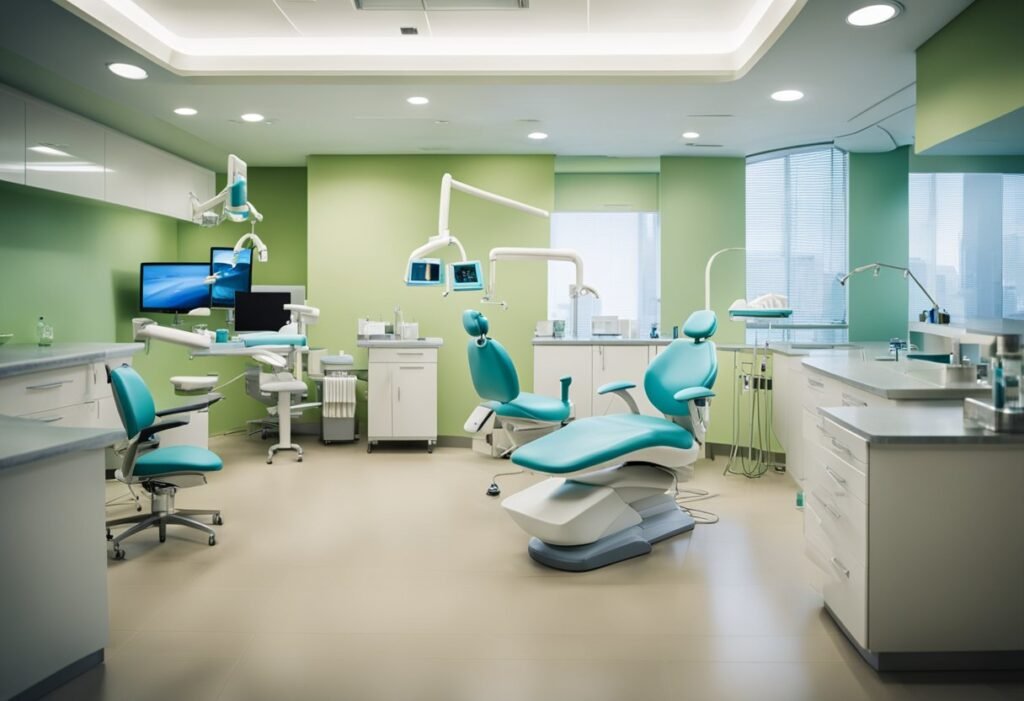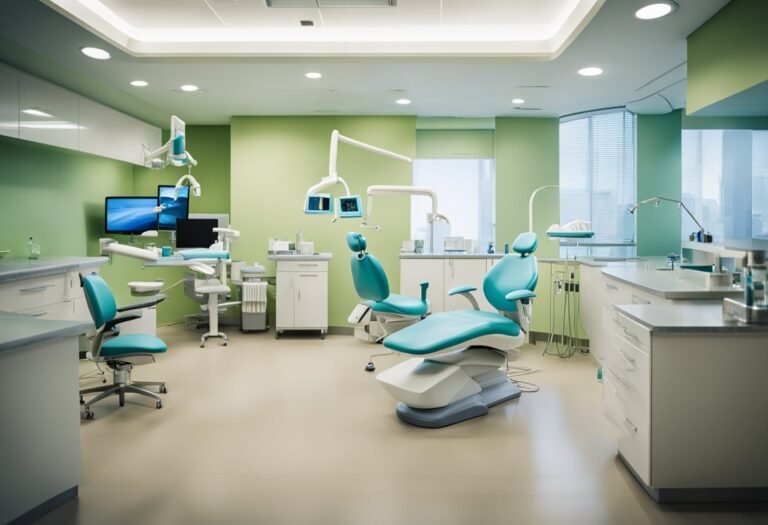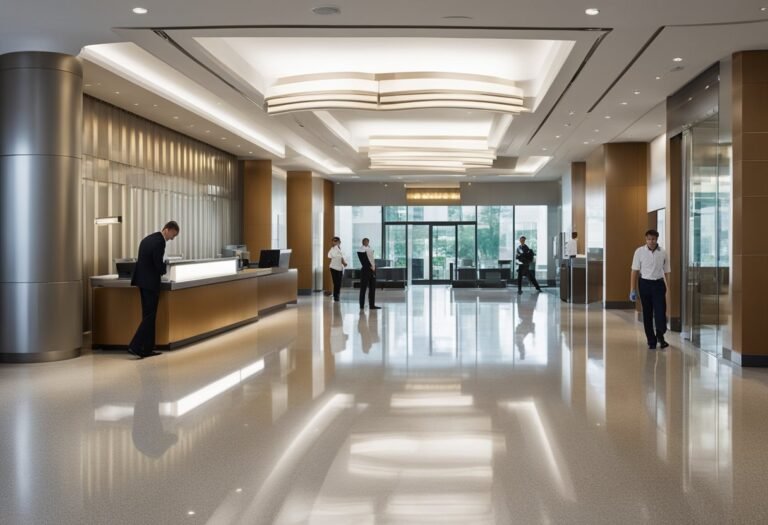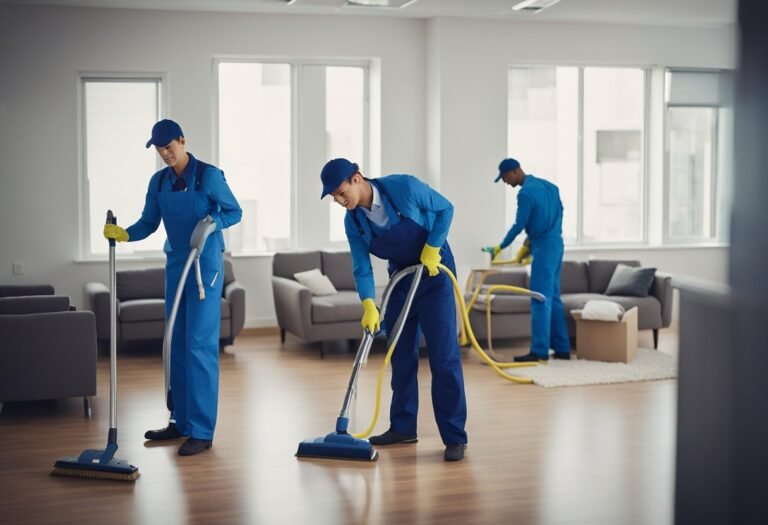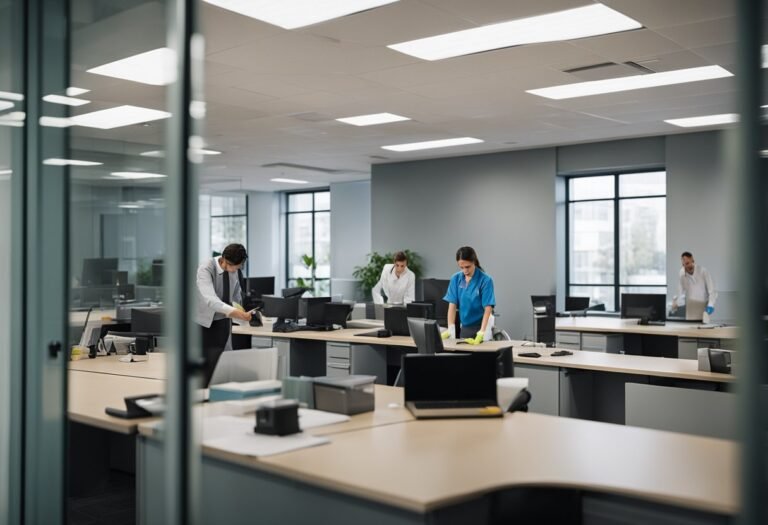Maintaining a clean and hygienic environment is crucial for the success of your dental clinic. An office that is regularly cleaned and sanitized provides a safe space for both your patients and staff, ensuring that your practice can operate efficiently and effectively. A well-maintained clinic also reflects your commitment to professionalism and the well-being of those who enter your doors, which can enhance your reputation and encourage patient loyalty.
Implementing a comprehensive cleaning plan can significantly reduce the spread of germs and bacteria, which is particularly important in a dental clinic where close-contact procedures are common. By prioritizing cleanliness, you minimize the risk of cross-contamination and infections, safeguarding your patients’ health. Additionally, a clean clinic helps to ensure compliance with health and safety regulations, protecting your practice from potential legal issues and fines.
A visually appealing and odour-free clinic also contributes to a pleasant environment, putting patients at ease and reducing anxiety associated with dental visits. This positive first impression can be instrumental in patient retention and attracting new clients through word-of-mouth recommendations. By investing in regular office cleaning, you are investing in your clinic’s smooth operation and long-term success.
The Importance of a Clean Clinic Environment
Maintaining a pristine clinic environment in your dental office is paramount for several reasons. First and foremost, cleanliness reduces the spread of infections. Dental clinics naturally harbour numerous bacteria and viruses due to the nature of the procedures conducted within. By meticulously cleaning surfaces and equipment, you cut down on cross-contamination risks.
Emphasis should also be placed on the trust and confidence a clean clinic instills in your patients. When they enter a spotless environment, the message conveyed is one of professionalism and thorough care. This perception is critical in fostering a strong patient-practitioner relationship.
Additionally, keeping your dental clinic clean enhances workplace safety. Clean, uncluttered spaces prevent accidents and make it easier to adhere to Workplace Hazardous Materials Information System (WHMIS) regulations—an essential consideration in the dental industry.
| Benefits of Regular Cleaning | Description |
|---|---|
| Infection Control | Minimizes the propagation of germs and bacteria. |
| Patient Confidence | Establishes trust and reassures patient safety. |
| Operational Efficiency | Ensures equipment is functioning correctly and available. |
| Regulatory Compliance | Helps maintain standards for public health and safety. |
Your clinic’s reputation is also at stake. Word-of-mouth recommendations are crucial for business growth, and patients are more likely to refer others to a clinic that upholds a high standard of cleanliness. Ultimately, diligent office cleaning is an investment in the smooth operation of your dental clinic. It supports your business’s health just as much as it does your patients’.
Strategies for Effective Office Cleaning
Maintaining a clean dental clinic is imperative for patient safety and the longevity of your equipment. Implementing a structured cleaning strategy will ensure hygiene standards are consistently met.
Daily Cleaning Routines
You should establish a daily cleaning routine to maintain a hygienic environment. This routine typically includes:
- Reception and Waiting Areas:
- Sanitize seating, doorknobs, and light switches.
- Clean windows and clear any debris.
- Operatories:
- Disinfect dental chairs, equipment, and surfaces.
- Replace protective covers on instruments and equipment.
- Restrooms:
- Sanitize all fixtures, replenishing soap dispensers and paper products.
- Staff Areas:
- Clean kitchen appliances and workstations.
- Remove waste and sanitize surfaces, particularly those that come into frequent contact with hands.
Use a checklist to track completion of these tasks, ensuring nothing is overlooked.
Deep Cleaning Schedules
In addition to your daily routine, schedule deep cleaning sessions to address areas that require more attention. These sessions may include:
- Floor Care:
- Perform carpet cleaning or floor waxing on a bi-annual basis.
- Address stains or spots as they occur to prevent permanent damage.
- Upholstery and Fabric:
- Schedule professional cleaning of chairs and waiting area couches every six months.
- Air Ducts and Vents:
- Have a professional service clean your HVAC system annually to maintain optimal air quality.
- Dental Equipment:
- Use manufacturer-recommended protocols for sterilizing and maintaining dental tools and machinery.
By adhering to these strategies, your clinic will not only appear clean to your patients but also provide a safe space for their dental care.
Health and Safety Standards
Maintaining optimal health and safety standards is crucial for the smooth operation of your dental clinic. These standards protect both your patients and staff from potential health risks.
Compliance with Regulations
Your dental clinic must adhere to the Health Canada regulations as well as provincial dental regulatory authorities’ standards. This includes:
- Keeping accurate records of cleaning protocols.
- Ensuring all cleaning staff are trained and certified in health care facility cleaning.
- Using Health Canada-approved disinfectants and cleaning agents.
Infection Control Procedures
Implementing rigorous infection control procedures is non-negotiable to prevent cross-contamination.
Daily Cleaning Tasks:
- Disinfect all surfaces using proper solutions, especially in high-touch areas like doorknobs and light switches.
- Use steam sterilization (autoclaving) for all dental instruments post-use.
Weekly Cleaning Tasks:
- Replace any air filters and ensure that ventilation systems are cleaned to prevent the accumulation of airborne pathogens.
- Deep clean all non-clinical areas such as waiting rooms and restrooms.
Remember, the cleanliness of your clinic directly influences patient safety and satisfaction.
Enhancing Patient Trust and Comfort
Office cleaning is integral to fostering a sense of trust and ensuring that your patients are comfortable in your dental clinic.
Creating a Welcoming Atmosphere
First impressions are lasting, and the cleanliness of your clinic is often the first thing patients notice. A spotless reception area with well-organised magazines, neatly arranged furniture, and absence of clutter sets a professional tone. Ensure your floors are gleaming and free of debris, and that seating areas are pristine and inviting.
- Reception Area
- Gleaming floors
- Neatly arranged furniture
- Organised reading material
- Odour-free environment
A clean, odour-free environment not only looks good but also smells fresh, which is critical in a healthcare setting. This attention to detail signifies to your patients that you uphold high standards throughout your practice, including their dental care.
Impact on Patient Satisfaction
Patient satisfaction is greatly influenced by the cleanliness of treatment rooms. A hygienic environment with sterilised instruments displayed on a clean tray, spotless chairs, and shining surfaces assures patients that they are in a safe space for their dental treatments.
- Treatment Rooms
- Sterilised instruments on a clean tray
- Spotless patient chairs
- Shining countertops and surfaces
- Uncluttered and sanitised spaces
Patient trust is built upon seeing that every aspect of their care, including the cleanliness of the clinic, is taken seriously. When you maintain strict cleaning protocols, your patients are more likely to feel at ease and have confidence in the services they are receiving.
The Role of Cleaning Staff
Your dental clinic’s cleanliness is paramount for patient safety and smooth operation. The cleaning staff play a crucial role in maintaining this environment.
Training and Responsibilities
Training: Each member of your cleaning team requires comprehensive training to understand the unique needs of a dental clinic. This includes knowledge of:
- Proper sanitization methods for dental tools and equipment
- Handling of biohazardous waste according to Canadian health regulations
- Specific cleaning protocols for examination rooms and reception areas
Responsibilities: The primary duties encompass:
- Daily cleaning tasks: Sweeping, mopping, disinfecting surfaces, and restocking consumables
- Scheduled deep-cleaning: Thoroughly cleaning all areas on a weekly or monthly basis to prevent the build-up of pathogens
- Ad hoc tasks: Responding promptly to spills or other cleaning emergencies
Outsourcing vs. In-House Teams
Outsourcing:
- Pros:
- Specialized expertise in clinic-grade cleanliness
- Flexibility to scale services as per your clinic’s schedule
- Cons:
- Potentially higher costs
- Less control over staff scheduling and training
In-House Teams:
- Pros:
- Full control over hiring, training, and schedules
- Team integration, fostering a cohesive clinic environment
- Cons:
- Requires investment in training and equipment
- Management of additional staff and HR considerations
Select your cleaning staff model based on your clinic’s size, budget, and specific needs. Whether outsourced or in-house, their proficient role is instrumental in supporting your clinic’s operational integrity.
Frequently Asked Questions
Before diving into the specific questions, it’s important for you to understand that maintaining a high level of cleanliness and sanitation in your dental clinic is critical for preventing cross-contamination and ensuring the smooth operation of your facility.
What are the best practices for cleaning and sanitizing in a dental clinic?
You should adhere to the guidelines provided by health authorities, including using approved disinfectants for surfaces and ensuring all tools are sterilized correctly after each use. Make sure that high-touch areas such as doorknobs and reception counters are frequently disinfected throughout the day.
What should be included on an end-of-day checklist to ensure a clean dental office?
Your checklist must cover thoroughly cleaning all patient areas, restocking disposables, disinfecting dental instruments and workstations, and properly disposing of hazardous waste. Ensure the patient washroom is also cleaned and restocked.
Can maintaining equipment affect the cleanliness and efficiency of a dental clinic?
Yes, regular maintenance of dental equipment is essential for cleanliness and can prevent the buildup of pathogens. Moreover, well-maintained equipment is less likely to malfunction, keeping your clinic operating efficiently.
What strategies can be implemented to enhance the overall cleanliness of a dental office?
Implement a routine cleaning schedule, use protective covers for equipment, and enforce strict hand hygiene protocols. Also, consider using air purifiers and increasing ventilation to maintain air quality in your clinic.
How does a clean and well-maintained dental clinic contribute to increased productivity?
A clean environment minimizes the risk of infection transmission, reduces equipment downtime due to unforeseen repairs, and can improve staff morale, all of which contribute to a more productive and efficient workflow in your clinic.
What role does professional office cleaning play in infection control in dental clinics?
Professional cleaners have the training and resources to perform deep cleanings, adhere to infection control protocols, and use the appropriate agents to ensure areas are sanitized effectively, which is crucial in preventing cross-contamination in your clinic.
